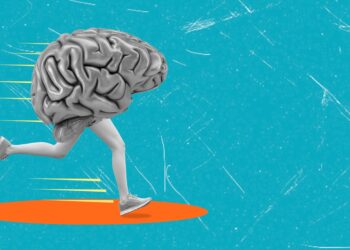People believe digital technologies will produce more help than harm in people´s lives.
Technology is everywhere, and undoubtedly, it has shaped the way we do just about anything, but how does that go for our well-being?
Data from a Pew Research Center investigation revealed that Americans believe digital technology is a good thing in their lives, however, over the past 18 months, concerns about personal and social impacts have been on the rise.
In light of these mounting concerns, Pew Research Center and Elon University’s Imagining the Internet Center queried technology experts, scholars and health specialists on this question:
Over the next decade, how will changes in digital life impact people’s overall well-being physically and mentally?
As 1,150 experts were interviewed, 47% of them predicted individuals´ well-being will be more helped than harmed by digital life in the next decade, while 32% say the life of people and their well-being will be more harmed than helped. 21% believe there will not be much change.
Themes about the future of well-being and digital life (PEW Internet):
| More helped than harmed | |
| Connection |
Digital life links people to people, knowledge, education and entertainment anywhere globally at any time in an affordable, nearly frictionless manner.
|
| Commerce, government and society | Digital life revolutionizes civic, business, consumer and personal logistics, opening up a world of opportunity and options.
|
| Crucial intelligence |
Digital life is essential to tapping into an ever-widening array of health, safety, and science resources, tools and services in real time.
|
| Contentment | Digital life empowers people to improve, advance or reinvent their lives, allowing them to self-actualize, meet soul mates and make a difference in the world.
|
| Continuation toward quality |
Emerging tools will continue to expand the quality and focus of digital life; the big-picture results will continue to be a plus overall for humanity.
|
| More harmed than helped | |
| Digital deflects | People’s cognitive capabilities will be challenged in multiple ways, including their capacity for analytical thinking, memory, focus, creativity, reflection and mental resilience.
|
| Digital addiction |
Internet businesses are organized around dopamine-dosing tools designed to hook the public.
|
| Digital trust/divisivness | Personal agency will be reduced and emotions such as shock, fear, indignation and outrage will be further weaponized online, driving divisions and doubts.
|
| Digital duress |
Information overload + declines in trust and face-to-face skills + poor interface design = rises in stress, anxiety, depression, inactivity and sleeplessness.
|
| Digital dangers |
The structure of the internet and pace of digital change invite ever-evolving threats to human interaction, security, democracy, jobs, privacy and more.
|












